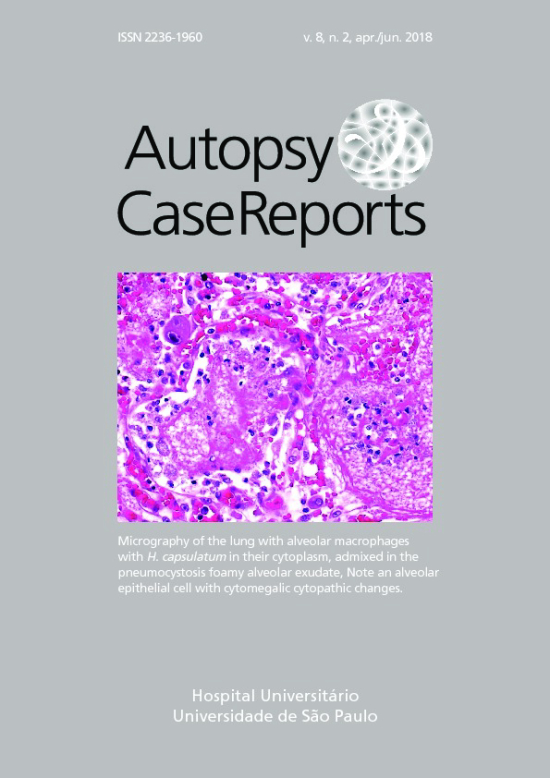Ovarian teratoma associated Anti-N-methyl-D-aspartate receptor encephalitis: a difficult diagnosis with a favorable prognosis
DOI:
https://doi.org/10.4322/acr.2018.019Keywords:
Anti-N-Methyl-D-Aspartate Receptor Encephalitis, Teratoma, Ovarian.Abstract
Anti-N-methyl-D-aspartate receptor (anti-NMDAR) encephalitis is a recently described auto-immune and paraneoplastic encephalitis with prominent neuropsychiatric manifestations affecting young adults with ovarian teratoma. The availability of a novel assay to measure these antibodies might suggest an etiology for this potentially life-threatening disease, which if early recognized can be treated promptly with surgery with chances of a good clinical outcome. Reported prognostic indicators for a good outcome depend on the presence of a tumor, prompt treatment and no admission to an intensive care unit. However, due to the rarity and unawareness of this disease, the diagnosis may be delayed as primary psychiatric disorders, and infective encephalitis is taken more into consideration and ruled out first. Here we report a case of anti-NMDAR encephalitis in a 22-year-old female prompted by an ovarian teratoma with a gradual and complete resolution of symptoms after surgical excision of the teratoma and immunomodulating therapies.Downloads
Download data is not yet available.
Published
2018-06-13
Issue
Section
Article / Clinical Case Report
License
Copyright
Authors of articles published by Autopsy and Case Report retain the copyright of their work without restrictions, licensing it under the Creative Commons Attribution License - CC-BY, which allows articles to be re-used and re-distributed without restriction, as long as the original work is correctly cited.
How to Cite
Mitra, A. D., & Afify, A. (2018). Ovarian teratoma associated Anti-N-methyl-D-aspartate receptor encephalitis: a difficult diagnosis with a favorable prognosis. Autopsy and Case Reports, 8(2), e2018019. https://doi.org/10.4322/acr.2018.019



